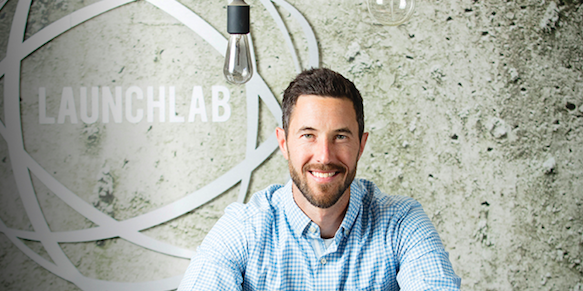In a move that signals a major leap forward in generative AI, OpenAI has quietly rolled out ChatGPT-5, its most advanced model to date….
2021’s silver lining for startups [Opinion]

Last year rocked everyone’s world and challenged every belief system we had and 2021 will bring more of the same uncertainty. In fact, I believe 2021 will be worse on a macro level for our economies, jobs, and livelihoods.
These difficulties will be intensified across Africa as it is unlikely we’ll be able to roll out the vaccine at the same speed and scale as the Global North
We are also seeing new variants of the virus that threaten to keep much of Africa on lockdown for some time to come.
What does this mean for start-ups? Whenever there is a challenging macro-economic event – caused by terrorism or a financial crisis for example – things get tougher for start-ups at a surface level. There is less funding available, customers may be reticent to spend money or switch products, and people are more risk-averse.
However, adversity always presents an opportunity and ‘creative destructivism’ is a real thing. Entire industries are being disrupted. This disruption is the fertile soil of which great entrepreneurs are grown.
At Stellenbosch University LaunchLab, we define a startup as a ‘temporary organisation searching for a scalable and repeatable business model’. This definition means startups are perfectly positioned to capitalise on this state of flux. In a pandemic the old business models are broken, which massively disrupts corporates such as airlines, hotels, chain restaurants, and service industries. Corporates are not lean, nimble, or agile enough to search for their new business model – plus they have soaring fixed costs and liabilities to be serviced.
Well-built startups do not face these same fixed cost burdens. They remain temporarily small and lean so they can search – as quickly and cost-efficiently as possible – for the model that fits the new normal. They are designed to thrive in ambiguous environments. They transform uncertainty into market insights that surprise and delight their customers. The key is to understand the dislocation and then search for innovative business models that meet new world order needs.
At Stellenbosch University (SU) LaunchLab, we view this disruption as the perfect opportunity for startups. Let’s first explore where the opportunities lie and then we can investigate how we as entrepreneurs can benefit and move the world forward.
Uncertainty brings possibility
Essentially, we are collectively rewriting a new social and economic contract, which is accelerating digitisation and driving automation across the globe. We’re already seeing massive changes in logistics, retail, entertainment, healthcare, and education, to name a few. Enormous opportunities lie in each of these sectors.
But, closer to home, Africa urgently needs a new model to progress. At SU LaunchLab, we believe Africa needs to utilise private sector entrepreneurism to solve the public sector deficiencies prevalent on the continent. These deficiencies exist primarily in three sectors, and start-ups that focus on and find solutions for these challenges will be greatly rewarded.
- Agri and data science
Africa needs to become more efficient and effective in its agricultural techniques, and data science tools such as big data, machine learning, and artificial intelligence provide the opportunity for farmers across the continent to increase their crop yields.
- Public goods
Governments across Africa will continue to collapse especially under the weight of the pandemic. Public goods such as clean water, energy, infrastructure, and education, which are generally supplied by governments in the Global North, will be solved by the private sector in the Global South.
- African-focused biotech
We have an enormous and diverse genealogy across Africa that has yet to be fully understood. There is a great deal of work in life sciences and genetics that can be done on the continent, for the continent.
Get lean, buy time, and search
Along with new buzzwords like the new normal and remote working, the pivot is now firmly in our vocabulary and collective consciousness. But to pivot simply means changing your strategy without changing your vision. That was the key to riding out 2020, and it’s going to be the key to riding out 2021 and beyond. Your job now is to unpack that vision and match it with the realities you see around you. Pivot, as swiftly as you can, to a place where your vision and what you do best serve the needs of the world into which we’re evolving. And then try, test, measure, repeat.
· Get lean so you can search. It’s all about getting costs – especially fixed costs – as low as possible so you can buy the time to search.
· Use Design Thinking and Lean Startup Methodology to search, search and search again for your new business model. This requires spending upwards of 50% of your time talking to potential customers to better understand the new problems that they face. Only then can you design products and services that best solve those new problems.
· Develop an entrepreneurial, growth mindset by reading books such as Grit: The Power of Passion and Perseverance by Angela Duckworth and Mindset: The New Psychology of Success by Carol Dweck.
No one knows how long it will take before we can unequivocally say we’re living in a post-pandemic world. I personally believe it’s not months but YEARS away. Either way, the most important and urgent shift we are facing is the way in which we decide to respond.
One of the key differences with this pandemic is that capital is still very available. Governments around the world continue to flood the system with cash, and there will be more and more venture capital funding if entrepreneurs can build customer-centric companies that search for viable business models. Those that see opportunity in the adversity, get lean, and use techniques to help them search will be rewarded with the unique opportunity to build the future.
This article was written by Joshua Romisher, the CEO of Stellenbosch University LaunchLab.
Featured image: Joshua Romisher, the CEO of Stellenbosch University LaunchLab (Supplied)

